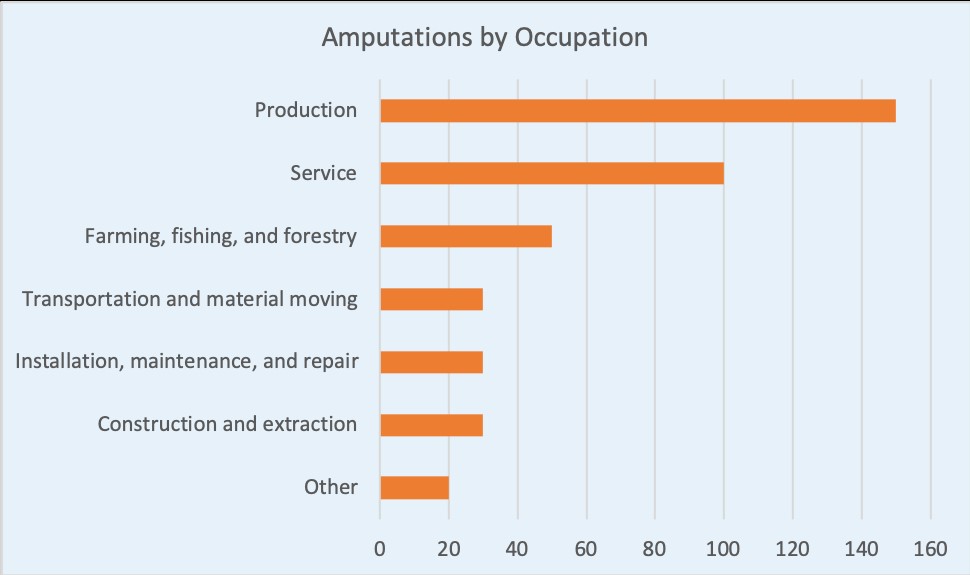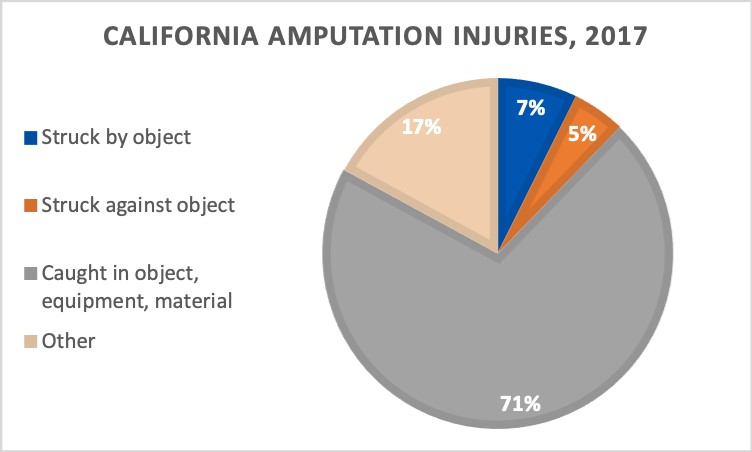How to recover damages after an injury involving amputation, disfigurement or permanent scarring
Amputation is the loss of a limb. It can happen from a traumatic injury from a car accident, work accident, slip or trip and fall, or any other incident. It can also be the result of vascular disease or other illnesses.
Amputation injuries can be the result of:
- Motor vehicle accidents (including car, truck, motorcycle, pedestrian, and bicyclist accidents)
- Industrial or agricultural accidents
- Violent crime
- Medical malpractice
- Burns or electrical shock
An amputation is a life-changing event, and most amputees face significant challenges as they learn to navigate the world in a new way.
A traumatic amputation could result from an unplanned surgery that’s necessary and immediate after an accident. There are also planned surgical amputations that are required as a response to a deteriorating medical condition that has no other treatment. Regardless, it’s a complicated procedure and can be life-threatening or have ongoing related complications.
Causes of amputation injuries
The most common causes of amputation injuries include:
- Burn injuries
- Construction accidents
- Industrial equipment accidents
- Factory accidents
We might think of an amputation as being an immediate situation — for example if a limb becomes severed in an accident. That does happen.
But a limb amputation can also be the result of a serious infection that doesn’t respond to antibiotics, a cancerous tumor, thickening of nerve tissue, frostbite, or other conditions that could cause poor circulation or tissue damage.
Workplace amputation injuries
There were 410 workplace amputations in California in 2017, which is the most current data available from the U.S. Bureau of Labor Statistics. Of those, 340 were men and 70 were women.
Within those industries, all 410 involved contact with an object or equipment.
Workers’ compensation is required for every employer in California, even if the company only has 1 employee.
California law requires a workers’ compensation insurance company to provide benefits for:
- Medical care
- Temporary disability benefits
- Permanent disability benefits
- Supplemental job displacement benefits
- Return-to-work supplement
- Death benefits
Amputation injuries caused by negligence
If your amputation injury is the result of another person or entity’s negligence, you might be eligible to file a California personal injury lawsuit.
California law defines “negligence” as an action or failure to act by a defendant who owes a duty of care to a plaintiff.
“Duty of care” is a broad definition — duty can exist between two strangers just as between people who have an established relationship.
Certainly, there are duty relationships between a doctor and patient, employer and employee, childcare provider and child, and a product manufacturer and the consumer. But there’s also a duty between a driver and a pedestrian (or anyone else who shares the road) or any other person who could be in a position where it’s possible that they could cause injury to another.
10-year-old Adrian Grajeda was playing outside his Palm Desert school at recess in 2013 when he was struck by debris from a car that crashed through the schoolyard fence. Adrian’s leg was amputated as a result of the crash.
The crash was caused by 84-year-old Malcolm Paterson, who was charged with a DUI during the incident. Adrian’s family filed a lawsuit against Paterson and recovered $700,000 for Adrian’s injuries.
If your California amputation injury was caused by someone’s negligence, there must be these elements in order to recover damages:
- Duty. The defendant had a duty to act or not act in a certain way.
- Breach. The defendant did not uphold their duty.
- Causation. The defendant’s breach caused your injury.
- Foreseeability. The defendant should’ve foreseen the likelihood that you’d be harmed by their action or inaction.
- Damages. Your injury resulted in actual damages such as the cost of medical treatment, pain and suffering, etc.).
What are the costs of an amputation injury?
There can be a number of costs associated with an amputation injury. Some are immediate, and others will happen over a period of time — maybe even a lifetime.
Costs translate to “damages” in a personal injury claim. You can recover both economic and non-economic damages.
Economic damages are those that have a specific cost or monetary value, like medical treatments and lost wages. Non-economic damages are more difficult to count — they might include pain and suffering, loss of consortium, and other factors that don’t relate to a specific financial expense.
If you’ve experienced an amputation injury, you might require the following treatments:
- Pain medication
- Physical therapy
- Occupational therapy
- Psychological therapy
You may also require compensation for:
- Pain and suffering. Few people who’ve had an amputation are able to live pain-free. You might experience soreness, swelling, and “ghost” discomfort for years following an amputation injury.
- Emotional distress. Aside from trauma from the accident itself, emotional distress can be related to acceptance of your new self, activities you can no longer do (or must do differently), the necessity of relying on other people to meet your daily needs, being unable to provide for yourself or your family financially, or other stressors.
- Lost wages and future earnings. Most amputees are unable to return to work in the same capacity as prior to the accident, if at all. For many, an alternative position leaves them with a significantly smaller salary.
- Loss of consortium. A loss of consortium claim can be added to a personal injury lawsuit by a spouse or other family member of the injured person. It’s not just about loss of sexual relations, as some people believe. Loss of consortium can also include companionship, love, and even the ability to perform basic family duties like childcare, housekeeping, and other responsibilities.
- Quality of life. You might not be able to put a dollar value on your quality of life losses, but that doesn’t make them less important. If you were a recreational tennis player, or a pianist, or a painter, or enjoyed any other hobby or activity — even if it’s not a hobby, but you can no longer physically care for your children or your aging parents — then your amputation can affect you in unexpected ways.
- Continued medical expenses. An amputation injury will leave you with an increased need for post-surgery checkups, you could experience secondary illnesses like rashes or infections, and you might incur costs for prosthetic or other assistive devices. An amputee might also be prone to fatigue or weight gain because of the additional physical strain on their body.
- Rehabilitation. An amputee might require significant rehabilitation in order to “relearn” how to manage daily activities in a different way. There might be things they can no longer do for themselves, depending on the nature of the amputation. It might take time and “training” of the other parts of the body to accomplish tasks that used to be second nature.
Read more about California medical malpractice damage caps.
Punitive damages in a California amputation claim
Punitive damages are sometimes awarded in order to punish a defendant above and beyond the plaintiff’s original claim. In California, punitive damages can only be awarded if there’s a finding of malice, oppression, or fraud.
Resources for amputees
Any severe injury can be life-changing and could carry both physical and emotional scars, both for the injured person and for the people who love them.
The following list of resources are specific to amputees, both nationally and in California, and can help guide you to agencies and organizations that can help you through this difficult time:
- Amputee Coalition
- Hanger Clinic AMPOWER: Amputee Support Group and Resource Center
- The Amputee Connection of Redlands
- New Horizons Un-Limited Inc.
- National Amputation Foundation
- Mutual Amputee Aid Foundation (MAAF)
- National Limb Loss Information Center
What to do after a California amputation injury
If you’ve experienced an injury that resulted in an amputation, whether from medical malpractice, a car or truck accident, workplace accident or something else, you will probably need a California personal injury lawyer to help you obtain the money you need to cover your costs and recover.
We invite you to use the Enjuris personal injury law firm directory to find a California lawyer who will help you get what you deserve to get on the road to recovery.
See our guide Choosing a personal injury attorney.



